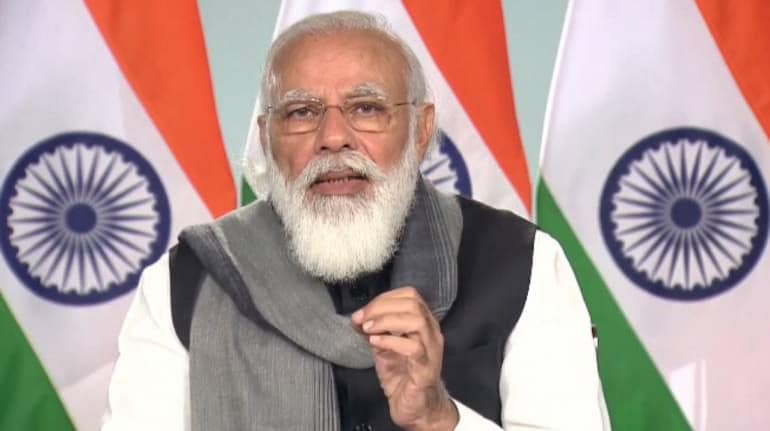



In May last year, Prime Minister Narendra Modi announced a special economic package to fight the Covid-19 pandemic in India. He announced the policy push for self-reliance while announcing the Aatmanirbhar Bharat package. The Prime Minister also outlined five pillars of Aatmanirbhar Bharat – economy, infrastructure, system, vibrant demography and demand.
Subsequently, Finance Minister announced Aatmanirbhar Bharat Package 2.0 in October and Aatmanirbhar Bharat Package 3.0 in November.
Collateral-free automatic loans for businesses, including MSMEs
Sitharaman announced a collateral-free automatic loan for MSMEs which would give facility up to Rs 3 lakh crore with 100 percent credit guarantee and no fresh collateral required. It was expected to benefit 45 lakh units.
Borrowers with up to Rs 25 crore outstanding and Rs 100 crore turnover were eligible for loans.
Under the Emergency Credit Line Guarantee Scheme (ECLGS), as of December 4, top 23 private sector banks and 31 non-banking financial companies (NBFCs), additional credit amounting to Rs 2.06 lakh crore has been sanctioned to about 80 lakh borrowers, while Rs 1.58 lakh crore has been disbursed to about 41 lakh borrowers, as reported by public sector banks.
The Scheme was further amended and the duration of the scheme was extended till March 31, 2021. The turnover limit prescribed was removed.
Partial Credit Guarantee Scheme for NBFCs
The Rs 45,000 crore PCGS was announced as part of the Atmanirbhar Bharat Abhiyan package and was aimed at providing liquidity support to weaker NBFCs, housing finance companies (HFCs) and microfinance institutions (MFIs).
As of December 4, public sector banks (PSBs) have approved the purchase of portfolio of Rs 27,794 crore and are currently in process of approval/negotiations for Rs 1,400 crore. The timeline for purchase of bonds or Commercial Papers (CPs) has been further extended till March 31, 2021.
Emergency working capital funding for farmers
As part of the package, the government had announced an emergency working capital of Rs 30,000 crore for small and marginal farmers. In addition, the government announced a Rs 2 lakh crore concessional credit scheme for farmers and fishermen.
As of December 4, Rs 25,000 crore was disbursed out of this special facility. Balance amount of Rs 5,000 crore under Special Liquidity Facility (SLF) was allocated to NABARD by RBI for smaller NBFCs and non-banking financial companies-micro finance institutions (NBFCs-MFIs).
Besides, NABARD had issued the guidelines in October to roll out disbursement out of SLF for smaller NBFCs and NBFC-MFIs.
Further, proposals amounting to Rs 690 crore has been sanctioned to 6 NBFCs-MFIs out of the balance amount of Rs 5,000 crore. Disbursement of Rs 130 crore has been done till December 4.
Income tax refunds
Central Board of Direct Taxes (CBDT) has issued refunds of over Rs 1.45 lakh crore to more than 89.29 lakh taxpayers between 1st April 2020 and 8th December 2020. Income tax refunds of Rs 43,274 crore have been issued in 87 lakh cases and corporate tax refunds of Rs 1.02 lakh crore have been issued in 1.99 lakh cases.
Outlay for Pradhan Mantri Awaas Yojana - Urban (PMAY-U)
Sitharaman had announced a Rs 18,000 crore additional outlay for the urban housing scheme to help complete real estate projects that would create jobs and boost the economy.
As part of the special window for affordable and mid-income housing, 135 projects were approved with an outlay of Rs 13,200 crore. This is expected to result in the completion of 87,000 houses or flats and Rs 18,000 crore will be provided over the Budget Estimates for 2020-21 for PMAY-U through additional allocation and extra-budgetary resources. This is over and above Rs 8,000 crore allocated already this year.
Rs 50,000 crore equity infusion for MSMEs
The Ministry of MSME had approved and issued the guidelines on Self-Reliant India (SRI) Fund on August 5. The NSIC Venture Capital Fund, the subsidiary company of National Small Industry Corporation (NSIC), has been incorporated under the Companies Act 2013. This Special Purpose Vehicle (SPV) will anchor the mother fund.
Following due process, SBI Cap Ventures has been selected as a fund manager or asset management committee. SBI Cap has already started working towards the preparation of Private Placement Memorandum (PPM). The Ministry of MSME is taking further steps for operationalisation of the fund.
MSME dues
Over Rs 21,000 crore of MSME dues have been paid in past seven months since May by the Central Government Agencies and Central Public Sector Enterprises (CPSEs).
The highest level of procurement was achieved in October of over Rs 5,100 crore and payment of over Rs 4,100 crore. Going by the reports received in first 10 days for November 2020, the government expects to surpass this as procurement of about Rs 4,700 crore and payment of about Rs 4,000 crore have already been reported.
Agri infrastructure fund for farm-gate infrastructure
The agri infrastructure fund was approved by the Cabinet in July and the scheme was formally launched by the prime minister in August.
Within 30 days after the Cabinet formally approved the scheme, the first sanction of Rs 1,128 crore was made to over 2,280 farmer societies. Memorandums of understanding (MOU) with all 12 public sector banks, 9 private sector banks, and 33 cooperative banks have been signed by the Department of Agriculture Cooperation & Farmers Welfare.
Discover the latest Business News, Sensex, and Nifty updates. Obtain Personal Finance insights, tax queries, and expert opinions on Moneycontrol or download the Moneycontrol App to stay updated!
Find the best of Al News in one place, specially curated for you every weekend.
Stay on top of the latest tech trends and biggest startup news.